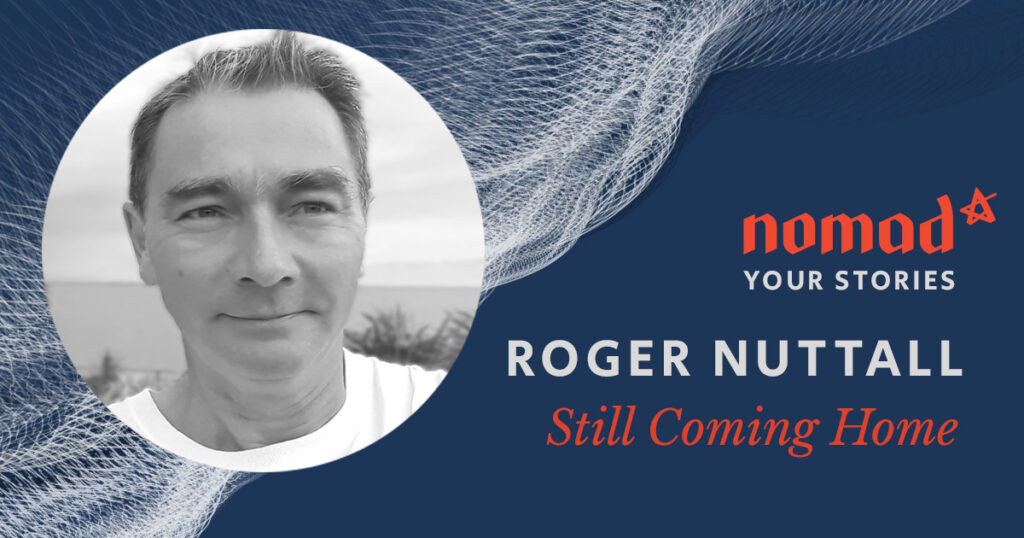When I left the UK in 1987, as a 21-year-old atheist, to hitch-hike around America for the second time, I was in search of ‘truth’: on the one hand envisaging finding it by meditating on a mountaintop, on the other hand not really believing ‘truth’ existed.
I’d previously run away twice, including ‘eloping’ with a girlfriend to the US when I was 19, fleeing an unhappy home situation on the spur of the moment, without telling anyone (apart from one friend) we were going.

This time, though, the escape was on my own and more planned, with money saved by selling cannabis and working. I’d sold or given away all my possessions except what was on my back, with a plan to spend the rest of my life homeless on the road and streets of, first, America, then the world.
The last thing I expected was to find Christian faith, but in retrospect a spiritual transformation had silently started 18 months earlier when reading the Sermon on the Mount had blown me away, especially Jesus’ words about forgiving enemies and not worrying about tomorrow.
My conversion was quite remarkable – not, as it turns out, as a result of meditating on a mountain nor through attending church, but through conversations with Christians and others and through a growing sense of “Someone up there looking after me” when I was out there on the road.
There was such a change inside me that my need for an itinerant life was replaced by a call to return to England and use what I’d been given to serve others. So, after 6 months and 15,000 miles of hitch-hiking, I did just that. I entered a career in nursing in 1989, and since 2004 I’ve been delivering healthcare to people experiencing homelessness and complex needs.
Within two years of returning to the UK in the late ‘80s, I was swept up into the world of charismatic evangelicalism. I say ‘swept up’ – maybe that’s unfair, I don’t know, but the appeal of a meditative approach to faith never left me, somewhere in my introvert personality. And I don’t know if I was ever that comfortable with the dogmatism that marked evangelical Christianity – even though for years I was quite a zealous evangelist!
I also tend to think that working with vulnerable and traumatised people changes you. I’m not sure it’s really possible for anyone with a deep sense of compassion and empathy to retain any sort of religious certainty in the face of so much suffering.
So, in more recent years, as the rise of the internet gave collective and connective voice to doubts and questions that some of us never previously dared breathe, a new sense of authentic spirituality arose from within me. This didn’t come without cost, though. Blogging my increasingly ‘progressive’ and inclusive thoughts on faith led to conflict with the leaders of the strongly evangelical Anglican church my family and I were attending, and the vicar then suggesting that we find another church. He didn’t seem to be able to cope with his congregation not all subscribing to his particular brand of Christianity.
I’ve always felt very fortunate to have found faith outside of church from the very beginning and, in fact, almost all my significant spiritual moments have taken place in solitude, so my faith has never been particularly dependent on church or leaders. However, this was a deeply hurtful experience for me and my wife, and probably served to drive me even further from evangelicalism.
We found a home in another Anglican church (part of the HTB network), which is incredibly accepting of theological and other differences, and I love its heart. My own attendance has become quite sporadic, though, for a number of reasons.
Although I still retain a broadly Christian faith, I describe it as very woolly! I feel disconnected from the modern evangelical style of worship at our church and I joke (not joke) with people that I love everything about the church except the services!
Also, workplace stress over the last few years has heightened my need for quiet, contemplative solitude. I’ve become more and more susceptible to sensory overload in loud, busy places and no longer cope well with a noisy, bustling church environment.
So, my Sunday mornings are often spent in quiet prayer and contemplation, or going for a run – or even listening to a Nomad podcast!
In tandem with this, my love of nature has become increasingly entwined with my faith and spirituality. A reflective nature walk in solitude is my idea of bliss. My blog, Spirit of Nature, combines four of my loves: nature, nature photography, contemplative prayer, and writing, so the blog is my perfect cathartic outlet.
In 2017 I published Coming Home for Good, an autobiographical book exploring homelessness, identity, addiction, faith and spirituality. I finished it when my faith was still in a significant pace of transition, so (disclaimer) there are aspects of the book that I would write very differently now. However, the book remains my proudest writing achievement.
In keeping with the importance of nature in my life, I describe my faith in terms of ‘evolution’ rather than ‘deconstruction’, seeing its movement forward as a natural progression.
Paradoxically, though, moving away from evangelical traditions to a more inclusive and meditative faith feels like coming back to who I was at the start of my spiritual journey – an authentic expression of my innate personality.
At the same time as feeling at home in contemplation, silence and mystery, the call to follow the person and teachings of Christ hasn’t left me, and my attempt to integrate these two facets of my faith remains a work in progress.
– Roger Nuttall

One Response
Quite remarkable.